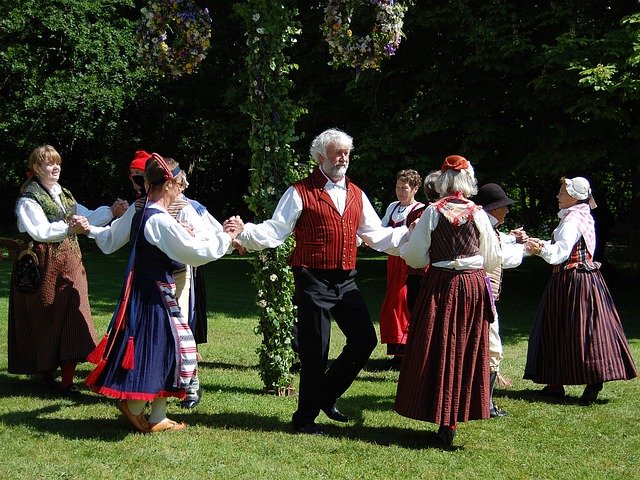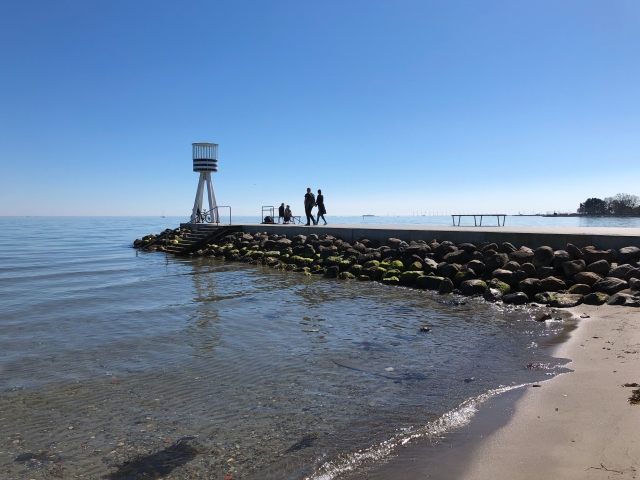The Law of Jante: A code based on a Danish novel that conveys the equality of Nordic societies

Nordic countries are regulars in the World Happiness Rankings published annually by the United Nations. Nordic societies, including Denmark and Finland, are characterized by a system that redistributes high tax burdens equally among citizens in the form of high welfare services such as education and healthcare.
In the Nordic countries, a set of values known as the “Law of Jante” exists, which emphasizes equality and cooperation. In this article, I will introduce the Law of Jante in detail.
Nordic societies that value equality and cooperation

The World Happiness Rankings are an annual survey published by the Sustainable Development Solutions Network (SDSN), a non-profit organization of the United Nations. The rankings quantify happiness based on factors such as GDP per capita, healthy life expectancy, and levels of corruption.
In the 2022 edition, Finland ranked first, Denmark second, and Iceland third out of 146 countries, with Nordic countries dominating the top spots. Sweden ranked seventh, Norway eighth, and Japan 54th.
For detailed ranking figures, please visit this website(https://worldhappiness.report/ed/2022/)
Finland has been in the top spot for five consecutive years, highlighting the strength of Nordic countries in the field of happiness. Why are people living in the Nordic countries so happy?
Factors include the abundant forests and lakes that cover the entire region, and the relaxed lifestyles exemplified by Sweden’s Fika and Denmark’s Hygge.
https://hokuou-info.com/en/2023/01/27/fika/ https://hokuou-info.com/en/2023/02/11/hygge/The focus of this article is the equality of Nordic societies. Nordic countries are known for their high welfare, high burden social model, where everyone pays taxes and enjoys equal welfare and services.
This is the so-called “Nordic Model” of national welfare policy, which offers free education and healthcare, as well as various other welfare services, as a benefit of paying high taxes.

At the foundation of these policies in Nordic societies is the value of “equality.” Instead of a competitive society where a few people monopolize wealth, everyone shares happiness equally. This allows everyone to live a comfortable life without the stress of competition.
And with that long introduction, we come to the theme of this article, the “Law of Jante,” which represents the “equality” of Nordic societies.
What is the Law of Jante?
The Law of Jante is a customary social norm emphasizing equality and respect for others, originating from a novel published in 1933 by Danish author Aksel Sandemose (1899-1965).
Sandemose was born in Denmark in 1899 and emigrated to Norway in 1930. In 1933, he published a novel titled “En flygtning krydser sit spor” (A fugitive crosses his tracks). The term “Jante” is derived from the name of a fictional village in the novel. The town of Nykøbing on the island of Morsø, Sandemose’s birthplace, is believed to be the model for the village of Jante in the novel.
The novel describes ten commandments that the villagers of Jante must adhere to, which became known as the Law of Jante. In Danish, the Law of Jante is called “Jantesloven” and in English-speaking countries, it is referred to as “The Law of Jante”.
Contents of the Law of Jante
Here are the contents of the Law of Jante:
・You’re not to think you are anything special.
Source:https://en.wikipedia.org/wiki/Law_of_Jante
・You’re not to think you are as good as we are.
・You’re not to think you are smarter than we are.
・You’re not to imagine yourself better than we are.
・You’re not to think you know more than we do.
・You’re not to think you are more important than we are.
・You’re not to think you are good at anything.
・You’re not to laugh at us.
・You’re not to think anyone cares about you.
・You’re not to think you can teach us anything.
The Law of Jante serves as a reminder to oneself. It strictly warns against feelings of superiority and arrogance and advocates for a humble attitude.
The Law of Jante is considered a concept shared not only in Denmark but also in Nordic societies. Emphasizing cooperation and consideration for others rather than asserting superiority, such egalitarianism can indeed be seen in today’s Nordic welfare state model.
Advantages and disadvantages of the Law of Jante

The Law of Jante promotes the idea of sharing wealth equally among all rather than allowing one person to excel. This value system, which fosters a sense of equality and collaboration, is widely shared among Nordic citizens.
While the Law of Jante is generally interpreted positively in Nordic countries, there are also disadvantages.
The downside is that, while valuing collaboration, the Law of Jante also leads to peer pressure against individualism. Pursuing group equality can also mean not recognizing the talents and abilities of exceptional individuals.
In Japan, there is a similar saying, “The nail that sticks out gets hammered down.” In a group where conformity is valued, individual freedom is inevitably restricted under the guise of equality. As a result, a stifling society pervaded by mutual surveillance and a sense of confinement can emerge.
Of course, excessively competitive societies like the United States, which produce a few winners and many losers, are also problematic. What is important is understanding the merits and demerits of the egalitarian Law of Jante, which resonates with Japanese values, and striking a good balance.
Conclusion
The Law of Jante is a term that originated from a novel published by Danish author Aksel Sandemose. It contains self-regulating principles such as “Do not think you are better than others” and “Do not think you know more than others,” which serve as a reminder against individual superiority.
This emphasis on equality and collaboration is an important value shared in today’s Nordic societies.




